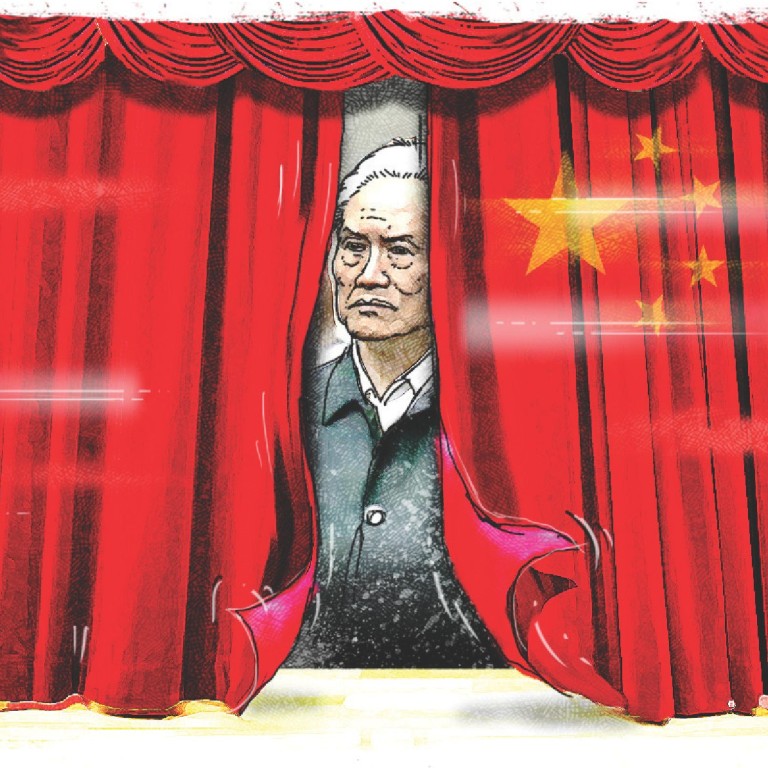
Why was Zhou Yongkang denied a public trial like Bo Xilai's?
Jerome A. Cohen says Xi Jinping may have decided to avoid the possibility of public embarrassment, given that the former security tsar knows the party's deepest secrets
I did not shed a tear when, on June 11, China's official press agency announced that former security tsar Zhou Yongkang had been sentenced to life in prison. Until late 2012, Zhou had been a member of the Communist Party's all-powerful Politburo Standing Committee and one of the most feared people in China.
Many expected that, according to law, Zhou's long-awaited trial for bribery and abuse of authority would be open to the public, with only a charge of leaking state secrets examined privately. Ultimately, however, the entire proceedings took place behind closed doors. The terse announcement of Zhou's sentence was the first indication that, without the legally required public notice, a brief trial had taken place almost three weeks earlier, on May 22. This surprised even usually knowledgeable senior judges. Presumably, Zhou Qiang , the able party leader who serves as president of the Supreme People's Court, helped organise the trial, although it contradicted his earlier public assurances that it would be open.
The written judgment of the Tianjin Intermediate Court that convicted Zhou Yongkang has not been published. Thus, one cannot evaluate the decision to completely close the trial on the grounds that the bribery and abuse of authority charges also involved "state secrets", a broadly defined term in the People's Republic. Of course, China's is hardly the only government to limit the embarrassment of a leader's misconduct by branding the details "state secrets".
Yet in the sensational bribery prosecution in 2013 of Bo Xilai - the powerful Politburo member suspected of vainly conspiring with the higher-ranking Zhou to oppose the ascendance of the current leader Xi Jinping - Xi permitted what purported to be a public trial. During a nationally televised portion of the trial, Bo made a show of cross-examination in his own defence before he too received a life sentence. Why was Zhou treated differently?
Although it might have been impractical because of their notoriety and would have violated the law, Xi could have used the courts to sentence both political opponents without any public announcement, as is sometimes done with lesser figures. Alternatively, he might have decided to rid himself of both enemies without any judicial process at all. That would have presented him with at least two other options based on party precedent: confine them for life in comfortable party custody without any legal pretext, the way Deng Xiaoping dealt with deposed party general secretary Zhao Ziyang following the Tiananmen massacre of June 4, 1989; or permanently eliminate them through cruel police detention, for example by denying urgently needed medical care, the way Mao Zedong dealt with deposed party general secretary Liu Shaoqi during the Cultural Revolution.
However, formally lawless options did not appeal to Xi, who has made "governance in accordance with law" and anti-corruption trials central themes of his administration's propaganda while nevertheless practising China's most ruthless repression in a generation. To enhance the legitimacy of his regime and to promote his continuing anti-corruption campaign, Xi had to be seen to hold a trial for Zhou, but circumstances did not permit even the controlled openness of Bo's trial.
The most obvious reason for this is that the corruption charges undoubtedly did involve details more embarrassing to the party than the comparable charges against Bo. Moreover, Bo's trial must have left the leadership with the belief that brief public exposure would be better. Bo's trial took five days - an extraordinarily long time for any Chinese trial since the 1980-81 prosecution of Mao's wife and others in the "Gang of Four". The televised excerpts of Bo in action were substantial, and the published portion of the transcript came to 96 pages. Bo's cross-examination of witnesses, like the appeal against his conviction, illustrated the rights of a defendant to resist, rather than accept, government accusations. On reflection, the Xi regime, which has increasingly intimidated criminal defence lawyers, may have decided that potential embarrassment outweighed any positive publicity and educational value a public trial might offer.
Zhou, a less openly feisty personality than Bo, was induced to set a far better example in the only televised aspect of his trial by meekly confessing, expressing regret for his crimes and waiving his right to appeal. This was model behaviour on display for the subjects of an authoritarian state. Yet virtually everyone was well aware that Zhou knew the party's deepest secrets. During more than a year of closed interrogation by party investigators and six months of further interrogation by government prosecutors, Zhou, as shrewd as anyone about China's political-legal system, must have bargained with stubborn skill, not only about his own sentence but also those of family members implicated.
After all, before Bo's trial, Bo's wife had already been condemned to life in prison, and his son was safe in the United States, but Zhou's family was at the mercy of the leadership. We do not yet know their fate, but we do know that Zhou, who might have been charged with additional crimes (his first wife died rather suspiciously), received a less severe sentence for the offences charged than might have been expected.
In an independent commentary on Zhou's case that appeared briefly in China's social media, Professor He Weifang , Peking University's famed law reformer, noted that given the magnitude of the bribery sums - much greater than those in Bo's case - Zhou might have warranted a suspended death sentence.
I would love to have been the proverbial fly on the wall listening to Xi's discussions with Wang Qishan , the party's anti-corruption chief, and Meng Jianzhu , now head of the national Party Political-Legal Commission, over their formerly feared colleague. Someday, the Chinese people may learn the facts.

